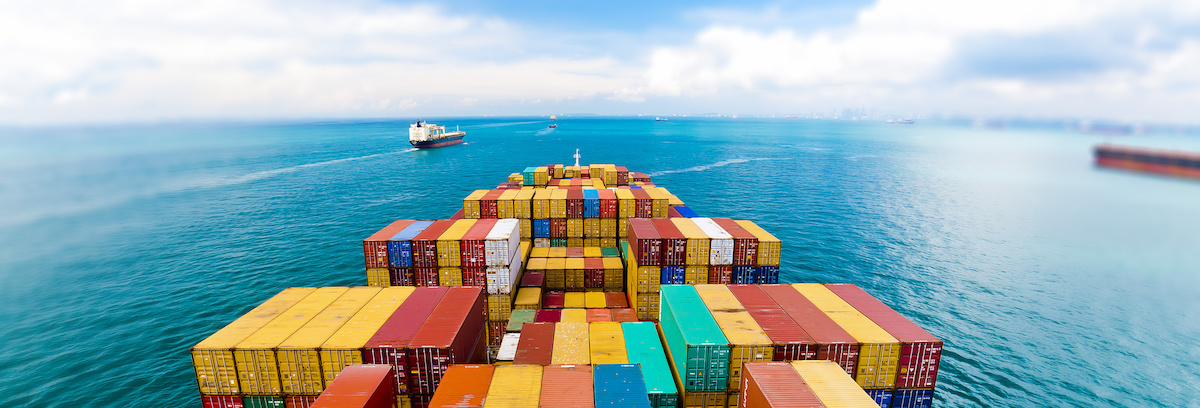
Do you know the warehousing industry in the US will be worth $29.2 billion in 2021 as international trade grows?
For the import and export trade, warehouses optimize your business’s operations. You should thus find the best warehouse for your storage needs in international trade.
For all your inventory management needs, you require a sizeable warehouse. Such needs increase with the business expansion internationally. A great warehouse helps streamline the supply chain, thus helping the brand grow.
Your business’ development is better suited with warehousing. If you doubt the need for warehouse space, this article is for you. Continue reading to understand the benefits of warehousing services for international trade.
Have Centralized Storage
Do you desire to have a centralized location for your business operations? Warehousing answers such concerns by allowing you a single site for storage.
The existence of a production gap in business can be a massive blow to business success. Your supply chain has to be as streamlined as possible, and it starts with having a central storage area.
Storing goods centrally allows you to receive, store quickly, and distribute commodities. As a result, you save on time and costs you’d otherwise incur with a production gap.
You’ll thus have to check the location when choosing a warehouse that fits your needs. It needs to be strategically located to meet the wants of your target market.
Better Order Processing
How efficient is your order processing? Did you know that you could increase your order processing ability through warehousing?
It’s no secret that you seek to serve your customers as fast as possible. An agile order processing system will help you achieve customer satisfaction.
Your clients want timely delivery, and the warehousing service helps you fulfill it. By having the items in inventory, you’re only left with shipping once clients place orders. Warehouses facilitate accountability, meaning you’ll know what inventory levels to maintain.
Improved Production Quality
Most people assume warehousing is only linked with the supply chain after production. It’s not true since investing in a warehouse also influences production.
When producing in large quantities, quality management systems can be lenient. You thus end up with several items in your inventory that might not be up to standard.
Warehouses offer you better insight into your production quality. You’re able to evaluate your raw materials to ensure you have quality inputs. By planning the necessary quantity for production, you’re able to keep an eye on the quality of the finished goods.
By detecting defects early, either on the raw materials or finished goods, you’ll adjust as need be. Warehousing thus ensures that your items meet the quality standards for international markets.
Improved Purchasing Decisions
How do you decide when to make additions to your business? From raw materials to equipment and supplies, warehousing helps make better purchasing decisions.
A warehouse is effective in inventory control and management. As a result, you’ll know about your order history on the sale of commodities. It’s thus ideal for identifying areas that need replenishing.
By determining what you need to stock up, you’re able to make strategic purchase decisions. You thus don’t get to splurge on raw materials or items that you don’t need. In the end, you’ll have an easier time turning a profit.
Leverage Seasonal Market Changes
Peak and off-peak seasons can be confusing for the business. Warehousing services assist you in leveraging operations for seasonal market changes.
Low seasons for your business are characterized by not hitting your sales targets. Such occurrences shouldn’t put you off since the warehouses let you plan for the low seasons.
You can study consumer trends to diversify your business as you adjust to market needs. Warehousing supports business growth since you can stock up for the peak seasons. The warehouse gives your business operations a boost without increasing the cost burden.
An Important Risk Management Tool
Business is risky, and you’d want to stay clear of anything that would result in losses. Warehousing is a risk management tool that’s invaluable in international business.
The risks within the international markets include inflation and exchange rate fluctuations. One of the functions of warehouses is to hoard commodities to avoid losses. You can keep inventory until you get an excellent market rate on your commodities.
There’s also the risk arising from product spoilage once production is complete. Warehouses are equipped with special facilities for a favorable condition to avoid spoilage.
Warehousing services leverage other risks such as theft and fires. The warehousing service insures goods in storage, so you get compensated for any product damage.
Types of Warehousing to Know
Let’s get familiar with the different warehousing types to better understand these benefits. You’ll need the knowledge before importing products!
Here is a brief outline of the various warehousing types:
- Public warehouses are state-owned and presented for rent by private businesses
- Private warehouses are owned solely by a specific entity to store their commodities
- Cooperative warehouses are owned jointly but are available for rent to private businesses
- Distribution centers apply in the distribution of shipments from one point to another
You Now Know the Benefits of Warehousing Services for International Trade
Every business has warehousing needs to be met for efficient supply chain processes. The needs grow with expansion into international trade, so you need warehousing services. The above guide highlights the benefits of warehousing services for international trade.
Are you looking for a warehousing service? Cordova Brokerage is here to help!
We’re strategically located within the US/Mexico border for convenience when exporting products. Our staff offer inventory control, logistics management, and security over the warehouse space. You can trust our team with your warehousing needs as we help your business grow.
Contact us today for a corporate statement.

 The year 2020 has been a bit of a wild ride. Well, that’s certainly an understatement. For many people in this country, the year has been filled with nightmarish rollercoaster-like ups and downs, twists and turns, and probably some machine malfunctions, ungreased gears, and loose screws. And yet, America—being the resilient and robust economy that it is— continues forward and marches on. So while every industry, every person, every sports team, business, and school is being, in some way, affected by changing regulations and people’s sudden hypersensitivity to personal space and hygiene, the global market is also seeing its effects. According to some reports, the global economy is seeing the sharpest reversal since the Great Depression. The drop was quite dramatic in the early months of the shutdown and has seen some steady recovery since.
The year 2020 has been a bit of a wild ride. Well, that’s certainly an understatement. For many people in this country, the year has been filled with nightmarish rollercoaster-like ups and downs, twists and turns, and probably some machine malfunctions, ungreased gears, and loose screws. And yet, America—being the resilient and robust economy that it is— continues forward and marches on. So while every industry, every person, every sports team, business, and school is being, in some way, affected by changing regulations and people’s sudden hypersensitivity to personal space and hygiene, the global market is also seeing its effects. According to some reports, the global economy is seeing the sharpest reversal since the Great Depression. The drop was quite dramatic in the early months of the shutdown and has seen some steady recovery since.  As old as silk; as common as tea; as valuable as spices. The history of trade can be traced back for thousands of years. It’s almost something human beings are naturally inclined to do and a mutual agreement that is found in all civilizations. And, in fact, it was silk, tea, and spices that were the major trade items that sparked what would later be known as ‘international’ trade. Today, the biggest trading markets include the European Union, the United States, and China.
As old as silk; as common as tea; as valuable as spices. The history of trade can be traced back for thousands of years. It’s almost something human beings are naturally inclined to do and a mutual agreement that is found in all civilizations. And, in fact, it was silk, tea, and spices that were the major trade items that sparked what would later be known as ‘international’ trade. Today, the biggest trading markets include the European Union, the United States, and China. 


